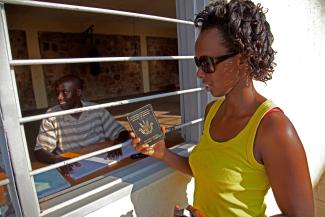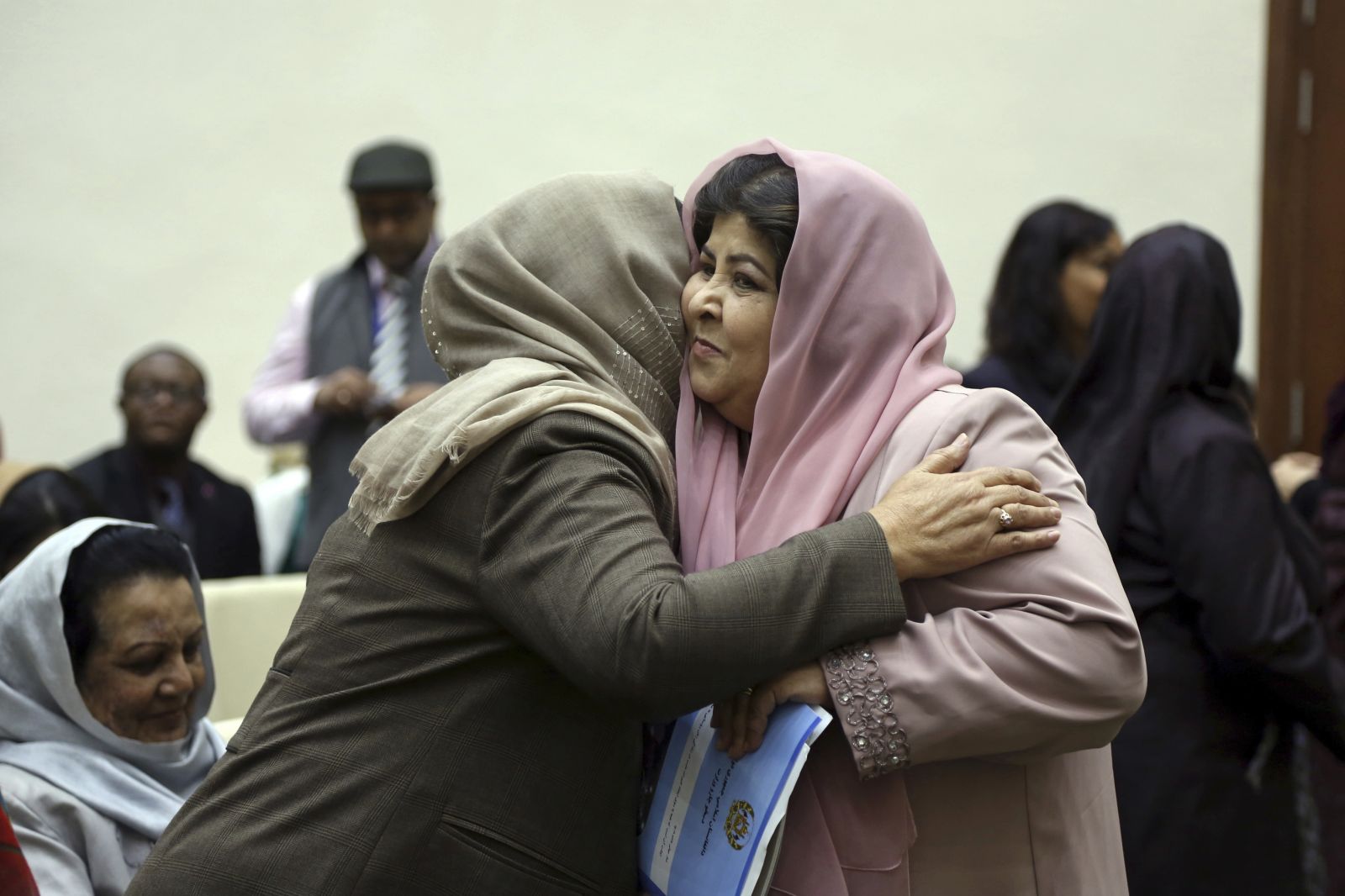Peacebuilding
Great achievement

When Burundi’s first democratically elected president, Melchior Ndadaye, was murdered on 21 October 1993, the longest and bloodiest crisis of the country’s history erupted. The impact of the war between the population groups of Hutus and Tutsis is still being felt today. Many people lost all kinds of support they previously had. Families were decimated. As a result of the war, the streets of Bujumbura, the capital city, are still full of begging women and children.
In the civil war, government institutions lost their legitimacy and their ability to operate. For a long time, the parties to the conflict opposed negotiations, but in the end, there was no other solution. A peace agreement was finalised on 20 August 2000 in the Tanzanian city of Arusha, mediated by Nelson Mandela.
The peace agreement introduced a women’s quote of 30 % for all public offices. This quota was a surprise, because none of the opposing parties had demanded it. Up to that point, the few women that held public office in Burundi had only come to power on behalf of men. This essay will elaborate how the quota came about and what impact it has had so far.
Women’s struggles
Women suffered particular hardship in Burundi’s war. Many became widows, with their families suddenly depending entirely on them. Many of them had neither income nor shelter. Women were raped, and gave birth to and cared for the children of the men who had abused them. Displaced women fled to refugee camps in Burundi, Rwanda, Tanzania and the Democratic Republic of the Congo.
Many women’s organisations and initiatives have emerged since 1993, for instance the CAFOB (Collectif des Associations et Organisations Non-gouvernementales Féminines) and the SPPDF (Synergie des Partenaires pour la Promotion des Droits de la Femme). Some initiatives focused on organising widows. ABANKI, for example, is the widows’ association of Bujumbura’s Kinama neighbourhood. It helps women find livelihoods. Many of these groups are supported by international civil-society organisations. Today, the national Ministry for National Solidarity also provides some funds.
Bernardine Sindakira of the SPPDF says that the gender quota is an achievement that was won in the struggles of the women’s organisations. These organisations were initially excluded from the peace talks in Arusha. However, they approached Yoweri Museveni, the Ugandan head of state who presided over the negotiations, and he eventually granted them an observer status. Thanks to their struggles, the women were later made full partners in the talks.
Among other things, the women drafted a declaration that attracted international attention. It contributed to making the UN Security Council pass Resolution 1325 on 31 October 2000. This resolution demands that parties to a conflict respect women’s rights and that women be involved as equal partners in peace talks.
Huge challenges
Probably the most important achievement of the Burundian women’s organisations was the 30 % women’s quota at all levels of government. It is an important instrument for changing gender roles. Traditionally, women do not have a say in Burundi’s public life, and they are certainly not expected to contradict men’s statements.
At first, the quota was met in Burundi. Two of the country’s five top positions were held by women in 2005. The president and one vice president were men, and the second vice president was a woman. The Senate was led by a man and the National Assembly by a woman. This arrangement even added up to a 40 % quota for women. However, due to party politics, the two women were later replaced by men.
A similar trend marks affairs at the provincial and municipal levels. Currently, only 136 of 2909 collines (districts) are led by women. The share is a mere 4.7 % instead of the officially required 30 %. “To actually meet the 30 % quota at all levels, we’ll have to do a lot more mobilising,” Sindakira says. She adds that women who want to become active in politics still face huge challenges.
Many women have pragmatic concerns. For instance, they don’t want to disrupt matrimonial harmony. Such caution makes sense, since too many marriages are haunted by violence. Divorce, however, means that a woman loses her livelihood. A fruit seller in Bujumbura puts it this way: “In order to avoid trouble, women go to the party meetings that their husbands attend.”
To assume political responsibility, however, a woman must act assertively in public. Marie-Suzanne Ndayisaba, who is a member of the municipal council of Rohero for the government party CNDD-FDD, sees three prerequisites:
- The woman concerned must have enough time.
- She must make regular financial contributions to her party.
- She must come up with ideas on how her party can rise to challenges and solve problems.
Women’s impact on public decision making could indeed be greater. Régine Nizigama, a primary-school teacher, argues that the gender quota has not changed power relations: “Women in positions of leadership do not dare to raise demands once the men have said no.” She believes that many women are afraid of losing their leadership position and becoming unemployed should they seriously attempt to assert themselves.
The quota, nonetheless, has certainly resulted in some positive developments. A survey done by the SPPDF showed that women politicians managed to considerably reduce domestic violence in the Makamba and Cbitoke Provinces. They were ready to confront men who denied their wives control of household assets or lived in polygamy. Such forms of misbehaviour has been made a criminal offences and can be punished.
Unmet quota
Ndagijimana Donatien of the SPPDF says that the quota of 30 % is too low and that women’s representation in policy-making bodies has a bearing on women’s roles in society. In this perspective, party programmes simply do not pay adequate attention to women’s issues. Relevant issues, according to Donatien, include inheritance, control of family assets, family planning, the legal implications of rape and polygamy. All too often, Donatien says, breaches of the law are tolerated.
According to Donatien, the best solution is to fight for a higher quota and to raise awareness among men for the needs of their wives, sisters and mothers. The SPPDF is certainly determined to carry on fighting for its cause.
Anne Niyuhire works for EIRENE’s Great Lakes Office, which is coordinating EIRENE’s affairs in Rwanda, Burundi and the DR Congo. EIRENE is an ecumenical Christian organisation.
eirene-grandslacs@eirene.org











